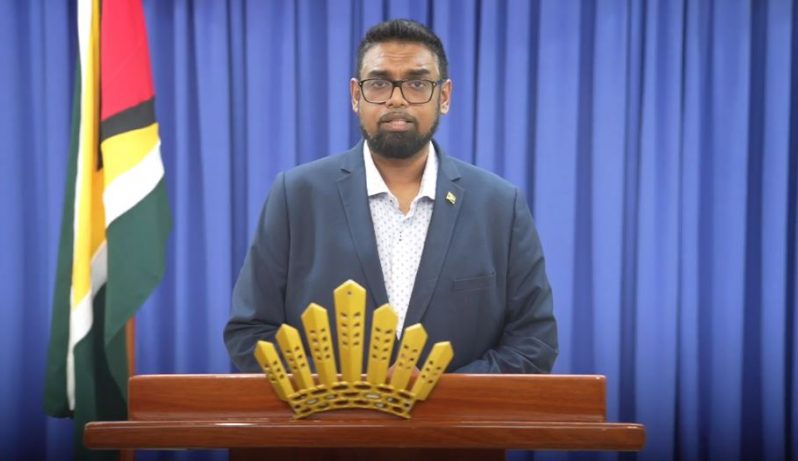GUYANA has welcomed the decision of the International Court of Justice (ICJ) to reject objections raised by Venezuela in the border case, which would now see the court moving forward with a final and binding determination of the international land boundary between the two countries.
Delivering Guyana’s position, President, Dr Irfaan Ali said this is the second time the court has made such a rejection against positions raised by Venezuela.
President Ali said Guyana remains confident the court will conform the standing boundary with Venezuela, underscoring that Guyana remains committed to a peaceful resolution in accordance with international law.
President Ali thanked Guyana’s legal team, its agent, and all stakeholders, especially Guyanese citizens, as the matter before the international court continues.
The ruling was handed down by Judge Joan E. Donoghue at the Peace Palace in The Hague, Netherlands.
Delivering the judgement Judge Donoghue said the Court recognized that the main objection from Venezuela is that the United Kingdom ought to be included in the proceedings regarding the border case.
On the jurisdictional objection, the Court said that only an objection to the “existence of the court’s jurisdiction” can be characterized as an “objection to jurisdiction”. As such, the Court concluded that Venezuela’s contention is against the court’s “exercise of its jurisdiction”, and therefore does not constitute an “objection to jurisdiction”. These are two separate concepts.
Building on its reasoning, the Court said that the Geneva Agreement outlines specific roles for Guyana and Venezuela, and that its provisions do not provide a role for the United Kingdom in choosing or participating in the way issues related to the border between Guyana and Venezuela are settled.
It therefore followed that Venezuela’s exclusive engagement with Guyana in the ‘Good Offices’ Process indicates that there was agreement between the two countries that the United Kingdom had no role in the dispute settlement process.
Accordingly, the ICJ said, the two countries have shown that the dispute could be settled without the involvement of the United Kingdom.
The Court concluded that the United Kingdom also accepted that the dispute between Guyana and Venezuela could be settled by one of the means set out in Article 33 of the United Nations Charter, and that it would have no role in the proceeding.
The Court rejects Venezuela’s position for the involvement of the United Kingdom.
Guyana brought the matter to the ICJ in an application submitted on March 28, 2018.
The court, in December 2020, confirmed its jurisdiction over the case, rejecting Venezuela’s objections. The Court will move forward with the substantive case.













